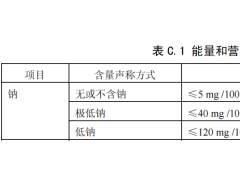§ 180.6 Pesticide tolerances regarding milk, eggs, meat, and/or poultry; statement of policy.
(a) When establishing tolerances for pesticide residues in or on raw agricultural commodities, consideration is always given to possible residues of those pesticide chemicals or their conversion products entering the diet of man through the ingestion of milk, eggs, meat, and/or poultry produced by animals fed agricultural products bearing such pesticide residues. In each instance an evaluation of all available data will result in a conclusion either:
(1) That finite residues will actually be incurred in these foods from feed use of the raw agricultural commodity including its byproducts; or
(2) That it is not possible to establish with certainty whether finite residues will be incurred, but there is a reasonable expectation of finite residues; or
(3) That it is not possible to establish with certainty whether finite residues will be incurred, but there is no reasonable expectation of finite residues.
(b) When the data show that finite residues will actually be incurred in milk, eggs, meat, and/or poultry, a tolerance will be established on the raw agricultural commodity used as feed provided that tolerances can be established at the same time, on the basis of the toxicological and other data available, for the finite residues incurred in milk, eggs, meat, and/or poultry. When it is not possible to determine with certainty whether finite residues will be incurred in milk, eggs, meat, and/or poultry but there is a reasonable expectation of finite residues in light of data reflecting exaggerated pesticides levels in feeding studies, a tolerance will be established on the raw agricultural commodity provided that appropriate tolerances can be established at the same time, on the basis of the toxicological and other data available, for the finite residues likely to be incurred in these foods through the feed use of the raw agricultural commodity or its byproducts. When it is not possible to determine with certainty whether finite residues will be incurred in milk, eggs, meat, and/or poultry but there is no reasonable expectation of finite residues in light of data such as those reflecting exaggerated pesticide levels in feeding studies and those elucidating the biochemistry of the pesticide chemical in the animal, a tolerance may be established on the raw agricultural commodity without the necessity of a tolerance on food products derived from the animal.
(c) The principles outlined in paragraphs (a) and (b) of this section will also be followed with respect to tolerances for residues which will actually be incurred or are reasonably to be expected in milk, eggs, meat, and/or poultry by the use of pesticides directly on the animal or administered purposely in the feed or drinking water.
(d) Tolerances contemplated by paragraphs (a) and (b) of this section will in addition to toxicological considerations be conditioned on the availability of a practicable analytical method to determine the pesticide residue; that is, the method must be sensitive and reliable at the tolerance level or in special cases at a higher level where such level is deemed satisfactory and safe in light of the toxicity of the pesticide residue and of the unlikelihood of such residue exceeding the tolerance. The analytical methods to be used for enforcement purposes will be those set forth in the “Pesticide Analytical Manual” (see §180.101(c)). The sensitivities of these methods are expressed in that manual.



